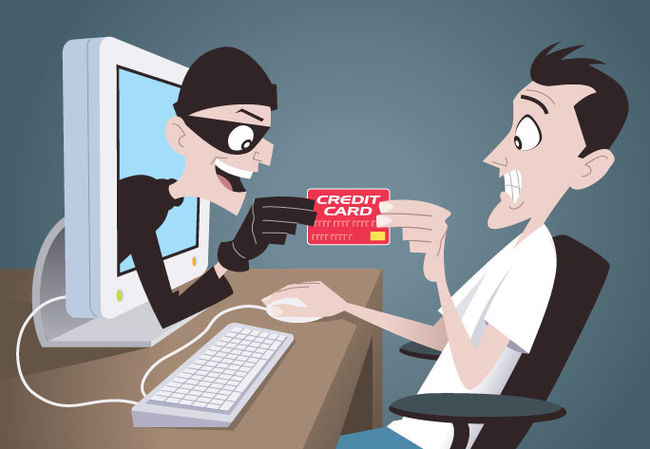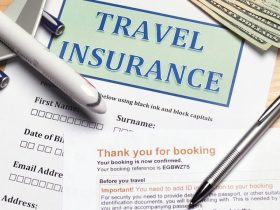With the economy at an all time low, thieves are turning towards more creative methods for obtaining cash and information. This means travelers are have a higher risk than ever before of becoming victims of identity theft.
Fortunately, there are several things you can do during your travels to safeguard your personal information and ensure you aren’t amongst the next group of victims.
9. ONLY CARRY WHAT’S NECESSARY
 Will you really need a credit card, your passport, or all of your travelers checks to get you through your day? If not, leave them in your hotel safe and carry only what you think you’ll need. If you do become a victim you’ll lose less and your attacker will have access to less information than if you were carrying all of your identifying information.
Will you really need a credit card, your passport, or all of your travelers checks to get you through your day? If not, leave them in your hotel safe and carry only what you think you’ll need. If you do become a victim you’ll lose less and your attacker will have access to less information than if you were carrying all of your identifying information.
8. LEAVE THE LAPTOP AT HOME
 Do you really need your laptop on a pleasure trip? If not, leave it at home. The world won’t end if you don’t check your email while lounging on the beach in Hawaii. If your laptop is the computer you use primarily it likely has a lot of personal information, including financials and passwords, and if it is lost or stolen you could easily become the victim of identity theft.
Do you really need your laptop on a pleasure trip? If not, leave it at home. The world won’t end if you don’t check your email while lounging on the beach in Hawaii. If your laptop is the computer you use primarily it likely has a lot of personal information, including financials and passwords, and if it is lost or stolen you could easily become the victim of identity theft.
7. AVOID ATM MACHINES
 If you really need money you are better off visiting a local bank than you are using an ATM machine. Thieves constantly monitor ATM machines in an attempt to skim PIN numbers or blatantly take your cash after you’ve made a withdraw. Check your surroundings, make sure the ATM doesn’t have any strange attachments above or below the card slot, make sure no one is nearby with a cell phone camera, and make sure you cover up the keypad as you type your code.
If you really need money you are better off visiting a local bank than you are using an ATM machine. Thieves constantly monitor ATM machines in an attempt to skim PIN numbers or blatantly take your cash after you’ve made a withdraw. Check your surroundings, make sure the ATM doesn’t have any strange attachments above or below the card slot, make sure no one is nearby with a cell phone camera, and make sure you cover up the keypad as you type your code.
6. STOP YOUR MAIL

You may think it’s a great idea to simply have a neighbor pick up your mail while you’re out of town but if a thief is casing your neighborhood he’ll eventually figure out you aren’t home and beat your neighbors to the mailbox anyway. Go to the post office and stop your mail while you’re away. Your mail, which could include Social Security statements, paystubs, and tons of other personal information, will be safe until you return.
5. FORGET FACEBOOK

Never, under any circumstances, post a status on Facebook to let your friends know you’re on vacation. You wouldn’t put a sign on your front door announcing you’re away and, as such, you shouldn’t announce it to the Internet world. Someone who breaks into your house will have access to tons of identifying information. The same applies to MySpace, Twitter, and any other social networking service you use.
4. USE CREDIT, NOT DEBIT

If you aren’t using cash while traveling, attempt to use a credit card instead of your debit card. If someone gets your debit card number you’ll likely lose all the money you need to pay your bills and the process of reversing the fraudulent charges can take a lot longer. If someone steals your credit card you’ll have an easier time recouping your losses, especially if you have an identity theft protection plan from your card holder.
3. NEVER LET YOUR CARD OUT OF SITE

Another great way to avoid identity theft is to never let your credit card go out of your line of eye site. If the waiter, or gas station attendant, or concierge (or anyone else), has to leave your line of vision the odds of him running your card twice and only giving you one receipt are significantly increased. They might even simply make a photocopy or take a cell phone picture of your card for later use. It can and does happen.
2. LIMIT BAG TAG INFORMATION

Do you really need to put your full name and address on the tags you attach to your luggage? Probably not. If someone gets a hold of your bag he’ll have your name and address AND he’ll know you’re not home. Put your name and phone number and leave it at that. An honest person will call you if he finds your bag. A thief won’t care either way but at least he won’t know where you live.
1. KEEP TRACK OF BOARDING PASSES

Once you’re on a plane you might think your boarding pass is no longer important and, as such, inadvertently lose track of it. Put your used boarding pass right back in your purse, wallet, or carry-on. It has a lot of identifying information on it and if it falls into the wrong hands it will announce your absence from home.
Your vacation should be a dream come true – not a nightmare. Take care of your personal information at all times and you’ll significantly decrease your odds of becoming a victim of costly identity theft.







Leave a Reply